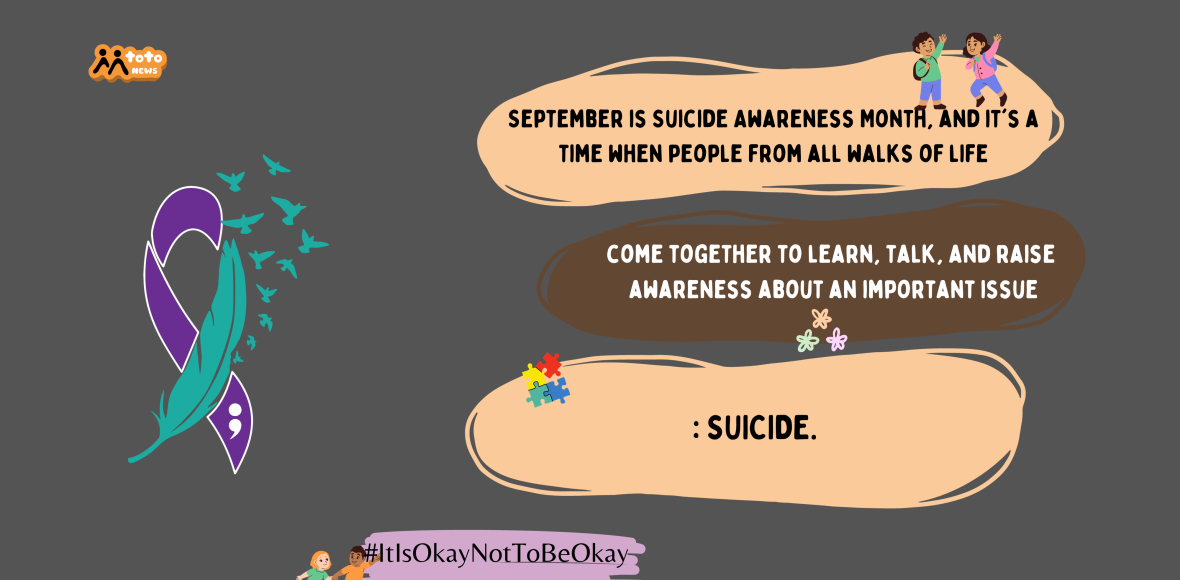
September is Suicide Awareness Month, and it’s a time when people from all walks of life come together to learn, talk, and raise awareness about an important issue: suicide.
Early this year there has been a shocking incident of a 12-year-old boy who died by suicide in Sirende village, Trans Nzoia County, after he allegedly differed with his father. The grade four pupil at Sirende primary school reportedly took his life by hanging at a neighbor’s coffee plantation.
Cases of suicide in children have been rampant, not forgeting another incident that happened towards the end of last year. The suicide of an 11-year-old boy from Kirinyaga who dug his own grave, telling his grandmother that the deep hole she had found him digging was to plant a banana stem.
She convinced him to cover it back up, but a few hours later, he hanged himself using a rope inside the house.
While most people often think of adults when we talk about suicide, it’s important to understand that children and teenagers can also experience these feelings. And that is why we will explore the topic of suicide among children, its warning signs, and how we can provide support.
First we need to understand the issue.
While it might be challenging to believe that children can feel this way, it’s important to remember that everyone’s experiences and feelings are unique. Some children may struggle with overwhelming emotions, and it is everyone’s responsibility to listen to them and help them.
Parents, teachers and caregivers are the people who typically spend the most time with children, and therefore, need to be aware of the warning signs that a child may be struggling with suicidal thoughts. Some of these signs include:
- If a child mentions wanting to die then it should be taken seriously, even if it sounds like a joke.
- Also, it is worrying if a child is experiencing extreme sadness, anger, or hopelessness that lasts for a long time.
- If a child suddenly isolates themselves or avoids social interactions they once enjoyed, it might be a sign that something is wrong.
- Be aware of significant changes in eating or sleeping habits, neglecting personal hygiene, or giving away belongings.
- A child who consistently feels like they don’t matter or are a burden to others may be at risk.
If you notice any of these signs in a child, it’s important to provide support immediately. Here are some steps you can take:
- Encourage open and honest conversations. Let the child know you’re there to listen without judgment. You can also reach out to a mental health professional, therapist, or counselor who specializes in working with children and adolescents.
- Inform another parent or guardian about your concerns so they can also provide support.
- Remove any potentially harmful items, like medications or sharp objects, from the child’s reach.
- Continue to offer your support and let the child know you care about their well-being.
It is extremely crucial to get help for a child with suicidal tendencies, as NIMH says that young children who attempt suicide are six times more likely than their peers to attempt suicide again in adolescence.

Leave a Reply